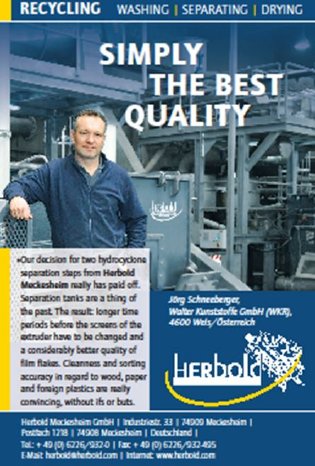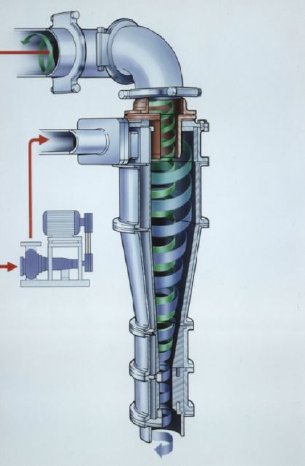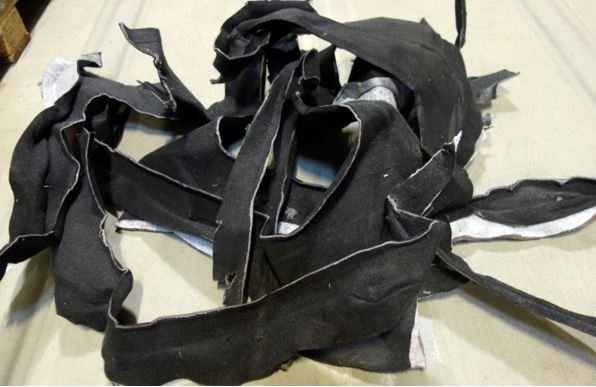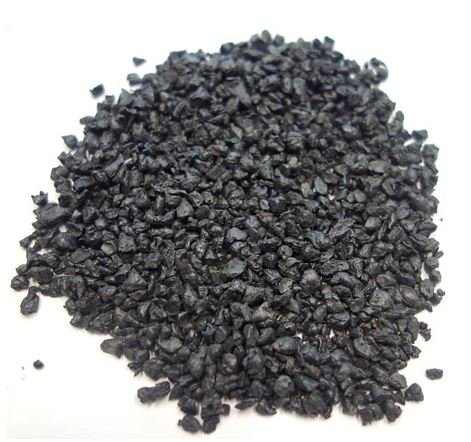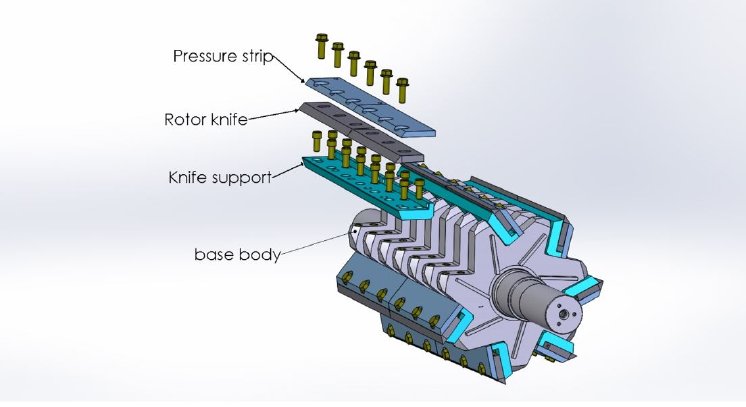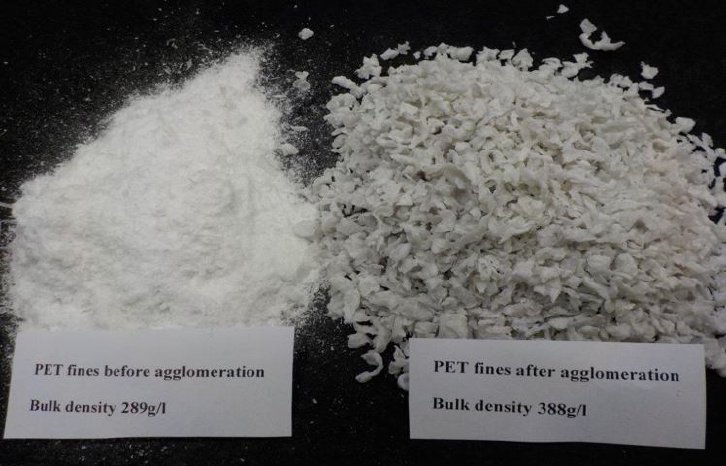Special emphasis is on high-performance plants, i.e. over 3 t/h for rigid plastics or over 1 t/h for films which have recently seen a growing demand. Another focus is on extremely thin films that are particularly difficult to wash, separate and dry. A third key aspect is in regard to extreme contaminations, such as sand, stones and soil in agricultural film, or remaining acid in battery cases. A further focus is on energy-saving recycling of PET bottles for bottle-to-bottle applications. Another emphasis is on Herbold’s great experience and the diversified scope of supply for retrofitting, upgrading, modernizing and refurbishing existing washing lines that have reached their limits.
Compacting of PET carpet waste from the production of interior linings for cars with the help of the Herbold Plastcompactor
During the production of textile interior car linings, production waste arises in the form of edge trims and faulty parts. It is high-quality waste, generally PET and very voluminous.
HERBOLD MECKESHEIM has delivered a turnkey recycling concept to an internationally leading automotive supplier for the recycling of this scrap.
The boxes used for transporting the scrap from the production plant to the recycling plant are automatically emptied and pre-shred in a special granulator. The Herbold HB series granulator can cope with the complete contents of a box; with the help of a hydraulic ram, the material is fed to the granulator’s rotor in portions and load-controlled.
After size reduction, the material ground to a size of 20-25 mm and in the current state very soft and fluffy is fed to a HERBOLD plastcompactor. There the material is slightly compacted between two grooved discs equipped with kneading bars and the final particle size is achieved with a secondary granulator. The bulk density is increased from approx. 30 g/l to approx. 300 g/l; the good flowing properties allow a return of the material directly to the production process. Due to a particularly gentle recycling, where the IV-value (viscosity) remains almost unchanged, the material can be added to new materials without any restrictions.
Optimized anti-wear protection for granulators
For abrasive materials, such as glass fiber reinforced plastics, Herbold Meckesheim provides wear-protected rotors and rotor base bodies equipped with exchangeable wear parts. This offers considerable cost saving compared to time-consuming armour-plating of housing and rotor.
Worthless dust becomes valuable raw material
Many manufacturing processes produce dust and fines looking for reclamation. Here some examples:
- Textile flock in textile finishing
- Fines when recycling post-consumer PET bottles, arising with friction washers and centrifugal dryers
- Fluffs arising during the recycling of bottle crates which are separated by air separation after size reduction
- Textiles or fibres arising when separating compound materials, e.g. the recycling of used tires
HERBOLD Meckesheim has a better approach to solving the problem: the material is slightly compacted in the HERBOLD Plastcompactor and transformed into agglomerate with a high bulk density and with excellent flow properties. The material is processed in continuous operation, between a fixed and a rotating disc, equipped with replaceable kneading bars. The pre-granulated material is conveyed continuously from the buffer silo by means of a continuously adjustable feeding screw into the processing zone through the center of the fixed disc. Due to the friction on and between the compacting discs, the amount of friction is determined by the distance between discs which is adjustable, the material is heated quickly, spun off and conveyed via a central downstream blower to the secondary granulator. Since the dwell time of the material in the compacting zone is only a matter of seconds, the thermal impact on the material is minimal contrary to extruders.
Herbold Meckesheim’s developments are ground-breaking. Herbold has developed wet size-reduction with granulators and made many further improvements to recycling techniques using state of the art equipment.
